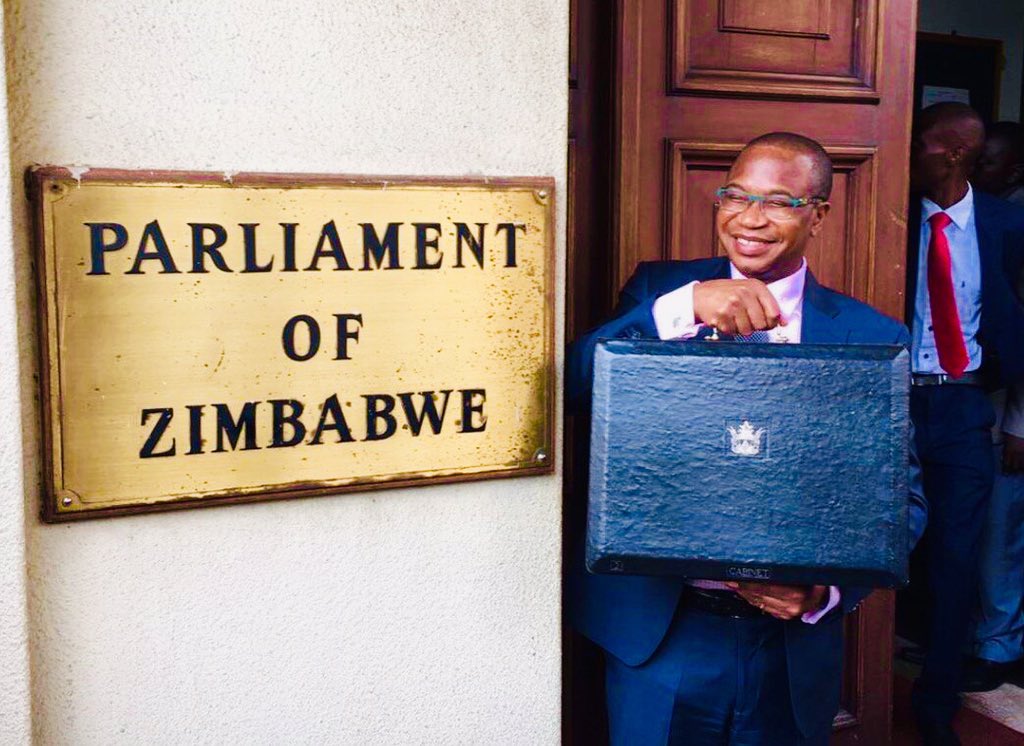By Dr. Tapiwa Mashakada
The government presented its mid-year economic and budget review on Thursday 16 July 2020 against high expectations from a nation on its edge. Because of the economic hardships, Zimbabweans were expecting some good news to make them at least smile. I was in Parliament listening very attentively. My take is that the Minister’s statement was not the panacea to pull the economy from its structural and macro-economic imbalances and the COVID-19 induced depression.
The Minister told Parliament, inter alia, that:1. The economy would grow by a negative rate of minus 4.5 percent in 2020 due to the COVID-19 pandemic. Government Ministries had underspent by 54 percent, having only used 46 percent of the 2020 budget. The economy registered a budget surplus of ZWL800 million in 2019. Non Taxable income threshold raised from ZWL2000 to ZWL 5000. Inflation is coming down to 300 percent by December 2020. The economy’s balance of payments position had marginally improved as imports had dropped. The ZWL18 billion post-Covid Economic Stimulus package was now in place with ZWL3.5 billion set aside for the Manufacturing sector and ZWL 1.5 billion earmarked for the SMEs.
The International Community had contributed a huge chunk (USD180million) of the USD200 million domestic and international appeal. The economy had suffered from macroeconomic and climatic shocks during the period under review, including the most devastating COVID 19 pandemic. The global economic growth outlook is projected at minus 4.9 percent. The foreign currency auction system has led to exchange rate predictability and stability.
My honest opinion is that the Budget Statement is divorced from practical realities and therefore is too abstract and academic.
The realities on the ground are about how to bring food on the table, how to resolve the high cost of living, how to tame inflationary pressures emanating from the two exchange rate regimes, how to revive the economy post-Covid and how to mobilize domestic and international resources to strengthen the budget, how to reindustrialize the economy and bring back a strong private sector in order to boost productivity, jobs, and growth, how to stop illicit financial outflows and deal with corruption, how to generate jobs in the formal and informal sectors.
We already know the chequered past performance of the economy and how the drought and cyclones have put the economy off its growth path. The Budget Statement dwelt too much on the past performance of the domestic and global economy and fell short of providing the way forward.
What we now need is a paradigm shift from the market or liberal economics to the economics of structural transformation based on strong economic fundamentals and an outward, open economy with a stable currency and sufficient foreign currency reserves.
Mthuli Ncube is a disciple of capitalism and hence his capitalist and neo-liberal policies have destroyed the economy. The Transitional Stabilization Program (TSP) has led to the unprecedented devaluation and debauchery of the Zim dollar. The TSP has led to internal devaluation which has seen a drastic fall in incomes and removal of subsidies on fuel, electricity, and basic commodities.
The TSP has destroyed Zimbabwe’s well tested social protection system, including the final decimation of the Health sector where the healthcare system is underfunded. Under the TSP, economic growth had tumbled. The only thing for Mthuli to show from his TSP is a positive book balance of ZWL800 million which is a mere US$80 000 in 3 years.
It is dishonest and treacherous to announce that inflation will fall to 300 percent in December 2020 when we can all see that Zimbabwe is losing the price war because the Zim dollar continues to lose value against the greenback at the parallel market. The Minister of Finance is a guru in economic theory not applied economics. He has single-handedly destroyed the Economy from where Mugabe left it.
When a country is burning like this and there is no confidence in government, the best thing is to widely consult civil society, churches, Parliament, farmers, cross border traders, women, youths, labour, business, and academia and become more streetwise. Zimbabweans are sick and tired of policy pronouncements which are empty of practical substance. In short, the midterm fiscal and economic review statement was a huge disappointment as it failed to provide an alternative solution and failed to address the practical challenges affecting people’s livelihoods on the ground.
The morning after, it is business as usual as people continue to reject bond notes, as prices continue to rise together with the parallel exchange rate and businesses remain closed due to working capital challenges. The Policy Statement has no “hello effect” whatsoever. Its a waste of time and another futile attempt to placate the restive masses.
The acid test of Mthuli’s statement is the fact that it has fuelled people’s anger and disappointing business. Even those sections of our society who were sitting on the fence are now determined to revolt against government come 31st July.
It is inconceivable that the whole Cabinet would endorse such an abstract Statement from Mthuli and his cabal at the Ministry of Finance. It only shows that Zimbabwe does not have a Ministry of Finance at all. The guys have done a shoddy job.
However, the buck stops with President Mnangagwa who must take full responsibility because he appoints Cabinet. The country is on the edge. The nation is divided and the situation is explosive. Zimbabweans must just unite and sculpt a new political and economic trajectory to save their beautiful country.
The prevailing economic hardships are affecting the whole nation, it doesn’t matter whether one is Zanu PF, MDC-T, or MDC Alliance. Zimbabweans need to find each other avert a national armageddon. Let us put Zimbabwe first and deal with economic saboteurs like Mthuli Ncube and his cabal at the Ministry of Finance and the Reserve Bank.






